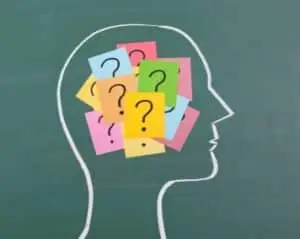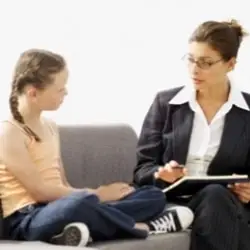Finding out your child has an ADHD diagnosis..

It can be overwhelming as a parent or caregiver to discover your child has ADHD. Before your evaluation with the child psychologist you noticed your child acting out at school and at home or day dreaming excessively. But after having the diagnosis confirmed, it can be stressful formulating an ADHD treatment plan to help your child manage their symptoms.
Working in partnership with a child psychologist, together you will create the best plan depending on your child’s symptom severity and personality. ADHD cannot be cured, but many studies and clinical cases have proven that it can be managed. The first few weeks after the diagnosis, may consist of a trial and error process as you navigate through the various options available.
Medication- The first line of treatment
While some people may have doubts over medicating their child, medication has been cited as an extremely effective treatment option. Parents and psychiatrists work together to find the right dosage and schedule for the child which can take up to a few months.
Two kinds of ADHD Medication:
1.Stimulants: stimulants are the most common ADHD medication used. They work to improve concentration and focus.
2. Non stimulants: If the stimulants do not work or cause side effects, non stimulants medications are used. They work to improve attention and memory (less likely to cause side effects).
One issue with medication is that side effects can occur which is why some children go on lower dosages or do not take medication. Side effects can include: irritability, nervousness, weight loss, head aches and more. More severe but less experienced side effects can include hallucinations, seizures and high blood pressure.
Non-pharmacological Treatment Options:
When medication does not work or if ADHD symptoms are mild, therapy can be used on its own. Some families do not want their child to be medicated and would rather combat ADHD symptoms with behavioral interventions and psychotherapy. Moreover, many parents decide to use a combination of medication and therapy together.
Types of Therapy for ADHD:
1.CBT: Cognitive Behavioral Therapy works to target problems and a intervene with specific behaviors. The psychologist works with the child to isolate a problem, create short term goals and address negative thinking.
2. Psychotherapy: In this talk therapy, the child can discuss his or her feelings regarding ADHD, how to cope with stress and understand thoughts surrounding certain behaviors.
Other ADHD Treatment Options:
1. Mindfulness- Mindfulness based meditation focuses on reducing stress, anxiety and improving self regulatory skills. Mindfulness meditations instruct an individual to pay attention to the present, focus on breathing, and target distractions. Mindfulness based meditations have been designed for children and these techniques implement play, imagination and keep children interested. Mindfulness mediation is an easy, cost free and side effect free therapy to implement with your child.
2. Neurofeedback- Neuro-feedback or brain training works to reduce ADHD symptoms by teaching someone’s brain to focus. A participant wears a cap with electrodes attached to his or her head while playing a video game or watching a movie. When the participant is paying attention and focusing, they can play the game and watch the movie. However, once the individual starts to day dream, the movie pauses and the video game glitches. This feedback teaches the brain to focus as only a healthy brain wave pattern can make the movie and game work again.
3. Behavioral Interventions: This includes parents monitoring the child’s behavior, creating strategies, providing direct feedback, reinforcement and step by step instruction. In school, teachers can seat children with ADHD away from doors and windows, have written behavioral plans and allow for movement breaks.
With all these options, what is right for you?
With so many different resources at your service, your child can find the intervention best fits his or her life style. Many parents also choose to initiate changes like healthy diets, exercising or having their children play outside more (all shown to improve symptoms). Every child is different, and after an evaluation with a specialist, you will spend time that session discussing a plan and setting up follow up times to meet and work together.
Work Cited
- https://www.additudemag.com/adhd-treatment-options-children/
- https://www.healthline.com/health/adhd/treatment-overview
Pliszka, S., & AACAP Work Group on Quality Issues. (2007). - Practice parameter for the assessment and treatment of children and adolescents with attention-deficit/hyperactivity disorder. Journal of the American Academy of Child & Adolescent Psychiatry, 46(7), 894-921.
- Arns, M., Heinrich, H., & Strehl, U. (2014). Evaluation of neurofeedback in ADHD: the long and winding road. Biological psychology, 95, 108-115.
- Househam, A. M., & Solanto, M. V. (2016). Mindfulness as an Intervention for ADHD. The ADHD Report, 24(2), 1-9.


